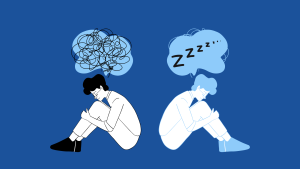Unlike other TMS system without navigation, the Apollo Navigated TMS system combines with magnetic resonance imaging (MRI) to visualize every unique structure of patients’ brains.
The navigation system avoids rough guessing when setting the target spot of stimulation. With the 3D brain model of the patient, we can provide the most accurate, personalized, effective and safe TMS treatment.
In contrast, ordinary TMS machine is not equipped with the navigation system. It is based on some specific measurements on the scalp of patients, with reference to some clinical data, to define the stimulation spot. Research has shown that only 30% of locations using this method are actually accurate. In other words, there is a higher chance of committing errors without the help of navigation, thus failing to achieve the desired therapeutic effect.
For treating depression, TMS was approved by the US Food and Drug Administration (FDA) as early as 2008. A large number of large-scale clinical studies have proved that TMS is a non-invasive and effective treatment for depression. At present, Alzheimer’s Disease is pending for FDA-approval, and it is believed that the result will be relieved at the end of the year.
Using TMS to treat other neurological diseases, such as anxiety disorders, neuropathic pain, stroke, tinnitus is the research focus nowadays. More and more clinical evidence is emerging as well.
The treatment time, along with all preparatory work, is approximately 25-40 minutes. The patient will sit comfortably in the chair during which the patient can listen to music and watch videos to relax. Moreover, the patient will remain fully conscious throughout the treatment.
During TMS treatment, patients normally do not feel great pain but slight tapping sensations on the scalp. A small number of patients will experience mild scalp tenderness, but these feelings will quickly disappear after the treatment period.
At the end of the procedure, the patient can resume normal activities immediately.
TMS is well-tolerated and associated with few side-effects . The most common side-effect, which is reported in about half of patients treated with TMS, is headaches. These are mild and generally diminish over the course of the treatment. Over-the-counter pain medication can be used to treat these headaches as well.
TMS has not been associated with many of the side-effects caused by antidepressant medications, such as gastrointestinal upset, dry mouth, sexual dysfunction, weight gain, or sedation.
The most serious risk of TMS is seizures. However, the risk of a seizure is exceedingly low (around 0.1%).
No, TMS will not cause any memory loss or brain tumors.
In fact, the type and intensity of magnetic fields used in TMS are the same as those used in magnetic resonance imaging(MRI), which has been widely used in the medical field worldwide for years. It has not been reflected with any long-term adverse consequences.
Patients with any type of non-removable metal in their heads (with the exception of braces or dental fillings), should not receive TMS. The following is a list of metal implants that can prevent a patient from receiving TMS:
- Aneurysm clips or coils
- Stents in the neck or brain
- Deep brain stimulators
- Electrodes to monitor brain activity
- Metallic implants in your ears and eyes
- Shrapnel or bullet fragments in or near the head
- Facial tattoos with metallic or magnetic-sensitive ink
- Other metal devices or object implanted in or near the head
Furthermore, those who have a history of seizure should not receive TMS therapy, since neuromodulation technology may impose risk of seizure to patients.
On average, patients receive 3- 5 TMS treatment per week for 19-37 minutes. The course of TMS typically lasts for 4-8 weeks.
In general, the symptoms begin to be relieved at the 4th – 6th week of treatment. After the treatment is completed, it is up to psychiatrists or clinical psychologists to determine whether the patient needs follow-up treatment.
TMS can be safely used along with antidepressants without adverse consequences. As for the use of other psychiatric drugs, it is better to discuss with your psychiatrist before use.





